11 medicines that may cause hallucination
Table of content
- 1. Antidepressants
- 2. Antipsychotics
- 3. Muscle relaxants
- 4. High blood pressure medications
- 5. Antibiotics
- 6. Anti-seizure medications
- 7. Sleep medications
- 8. Parkinson’s medications
- 9. Antihistamines
- 10. Pain medications
- 11. Corticosteroids
- What is important to know about hallucination-inducing medicine?
- How common are drug-induced hallucinations?
- What should I do if I hallucinate while taking medication?
- How long do hallucinations usually last after taking medication?
- What causes hallucinations most often?
- What are the types of hallucinations?
- Are there any alternative medications that can be used to avoid the risk of hallucinations?
- Can you develop an addiction from overusing medicines that may cause hallucinations?
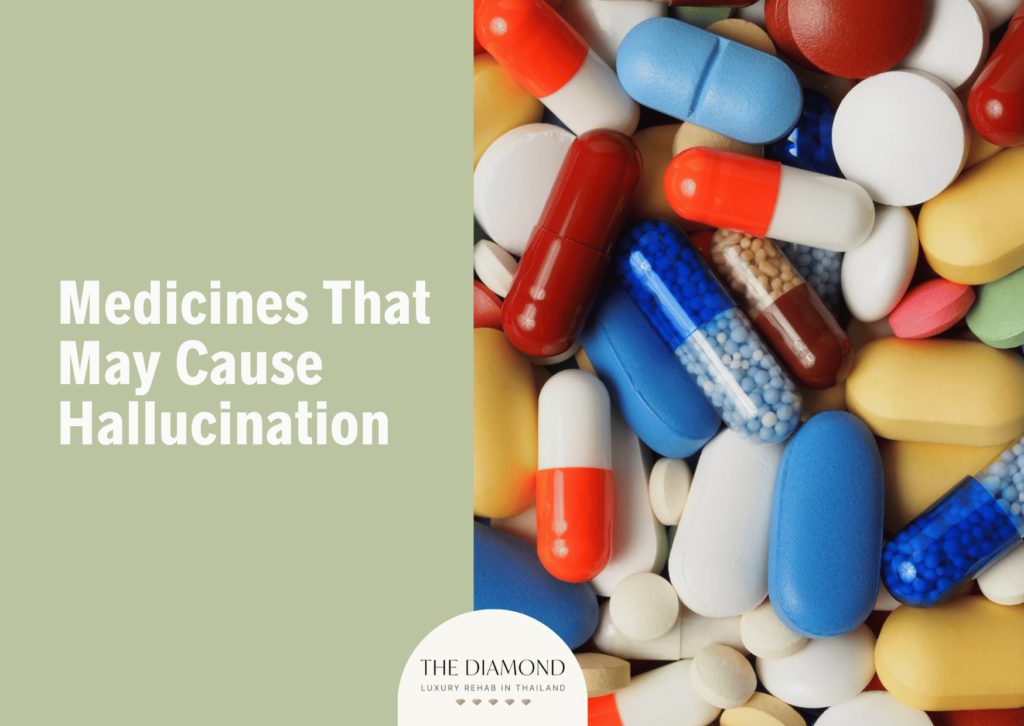
Medications are drugs that are used to treat, cure or prevent disease. Along with their benefits, medications can have side effects as well (adverse or undesirable reactions). Hallucinations also occur as a side effect of taking certain medications.
A hallucination is the perception of something that does not exist in reality. Hallucinations can be perceived through any of the five senses; sight, touch, smell, scent, and taste. Medications that cause hallucinations include antidepressants, antihistamines, and antibiotics. Often times using multiple medications could exacerbate psychotic side effects.
1. Antidepressants

Antidepressants are a type of medication that is typically used to treat major depressive disorder. However, it can be prescribed to treat other disorders, such as anxiety disorders and obsessive-compulsive disorders.
In a 2009 case report published in the Primary Care Companion to the Journal of Clinical Psychiatry and compiled by Tripp and Golden, Venlafaxine (sold as Effexor) was cited as the cause for complex visual hallucinations presenting in a 44-year-old man.
Bupropion (sold as Wellbutrin) has also been identified as an antidepressant that could cause hallucinations, according to a 2012 case report written by Korkmaz et al. and published in the Klinik Psikofarmakoloji Bülteni-Bulletin of Clinical Psychopharmacology.
Antidepressants have been linked to hallucination in cases of overdose, although hallucinations rarely occur in cases of therapeutic doses. In their 2017 case report published in the Case Reports in Psychiatry journal, Santos and Moreina concluded that antidepressant treatments are associated with an increased risk of hallucinations.
2. Antipsychotics
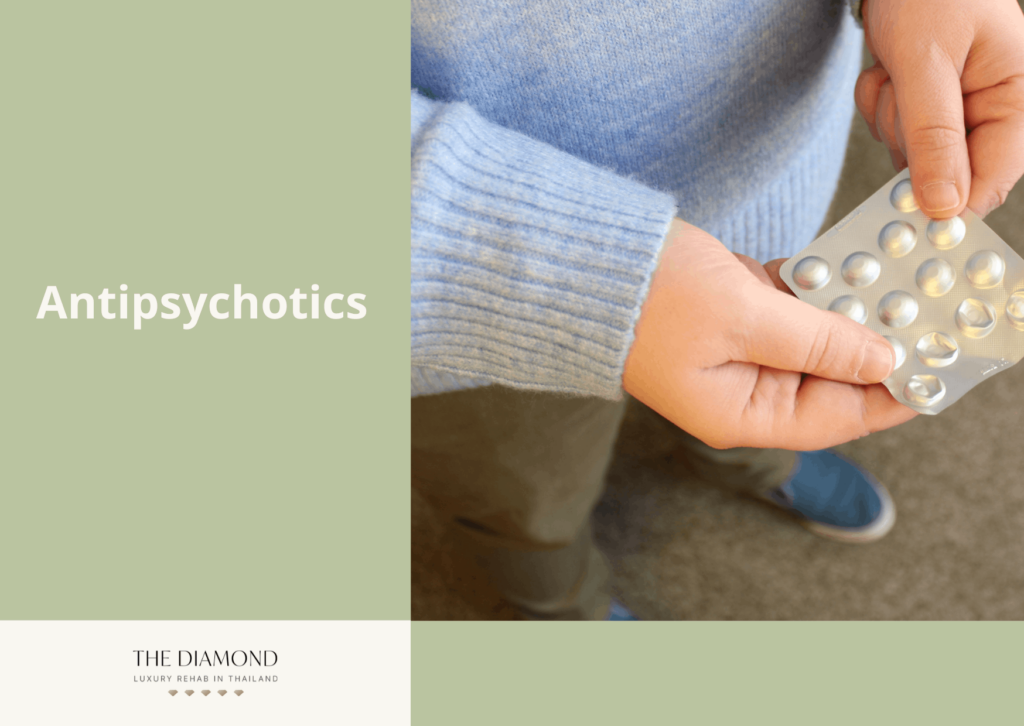
Antipsychotics are a type of medicine that is mainly used to treat psychosis-related conditions and symptoms. According to Cleveland Clinic, there are two distinct generations of antipsychotic medications.
First-generation (typical) antipsychotics, such as chlorpromazine (Thorazine) and haloperidol (Haldol), were the first medications developed to treat psychosis. However, these medications are not often used anymore.
Second-generation (atypical) antipsychotics, such as aripiprazole (Abilify) and olanzapine (Zyprexa), are much more common since they have fewer side effects than first-generation medications.
Antipsychotics are typically prescribed to decrease psychotic symptoms, such as hallucinations. However, in some cases, these drugs might worsen hallucination symptoms. This was documented in a 2014 case report compiled by Volpe et al. and published in the BMJ Case Reports Journal.
According to Volpe et al., the atypical antipsychotic olanzapine (sold as Zyprexa) may worsen hallucinations in a psychotic disorder.
In a 2009 evaluation article published in the British Journal of Clinical Pharmacology, authors Sim et al. concluded that high antipsychotic doses are more likely to be associated with positive psychotic symptoms, such as delusions and hallucinations.
Hallucinations are not a common side effect of antipsychotic drugs. As mentioned, these drugs are usually used to relieve psychotic symptoms such as hallucinations.
3. Muscle relaxants

Muscle relaxants are a type of medication that alleviates muscle-related symptoms, such as spasms or spasticity. Some muscle relaxants can be purchased over the counter, while others need to be prescribed by a doctor.
Tizanidine (sold as Zanaflex) is one of the drugs that are only available with a doctor’s prescription. The Mayo Clinic confirms that tizanidine can cause hallucinations while using it to treat a muscle-related condition.
In a 2015 case report published in the Primary Care Companion for CNS disorders, Dr Bulbena-Cabre et al. reported a case of cyclobenzaprine (sold as Flexeril) induced hallucinations in 51-year-old women.
According to the American Addiction Center, hallucinations are a common side effect of muscle relaxant overuse, and taking higher dosages of this medication could cause hallucinations.
4. High blood pressure medications
High blood pressure (anti-hypertensive) medication helps bring high blood pressure down to a normal range (lower than 120/80 mmHg). However, these medications cannot cure high blood pressure. According to WebMD, there are many different types of high blood pressure medications, and often times more than one type is used to control a patient’s blood pressure.
According to the Mayo Clinic, beta-blockers are one of the medications prescribed to treat high blood pressure since it forces the heart to beat slower and with less force, thus lowering the blood pressure.
In a 2021 study published in the Medicana Journal, Cojocariu et al. suggested that patients who use lipophilic beta-blockers have had at least one neuropsychiatric symptom (hallucinations, delirium, depression, etc.)
Another antihypertensive drug, lisinopril (sold as Zestril) is an ACE inhibitor that has recently garnered reports of causing visual hallucinations in the elderly, according to Doane and Stults in their 2013 research paper published in the Journal of Clinical Hypertension.
A case study focusing specifically on metoprolol (a beta-blocker) was published in 2012 in the Journal of Medical Case Reports. Jonathan Goldner discusses multiple cases and concludes that metoprolol (sold as Lopressor) has induced visual hallucinations in multiple patients.
According to Missouri Poison Center, higher doses of beta-blockers could lead to hallucinations, seizures and coma. The National Library of Medicine also describes blurred vision and irregular heartbeats as symptoms of a beta-blocker overdose.
A 2020 review published by Ranjan et al. in the International Journal of Modern Pharmaceutical Research concluded that hallucinations could be an under-reported and under-recognized beta-blocker medication side effect.
5. Antibiotics

Antibiotics are a type of medication that is used to treat some bacterial infections. The medication kills the bacteria or prevents it from spreading. However, in some cases, the human body is able to kill bacteria without the need for antibiotics.
The Centers for Disease Control and Prevention states that antibiotics are usually prescribed to treat strep throat, whooping cough, or a urinary tract infection (UTI). Antibiotics are not prescribed for illnesses caused by viruses, such as the cold, flu, or bronchitis.
A research study performed by Neurology and published in 2016 reviewed the reports of 391 patients. A total of 54 different types of antibiotics were involved from various classes. The study concluded that roughly 47% of these patients had delusions or hallucinations. The hallucinations were associated with sulfonamides (68%), quinolones (67%), macrolides (63%), and penicillin procaine (68%).
According to the NHS, increasing the dose of an antibiotic could increase the chance of experiencing side effects, such as hallucinations.
6. Anti-seizure medications
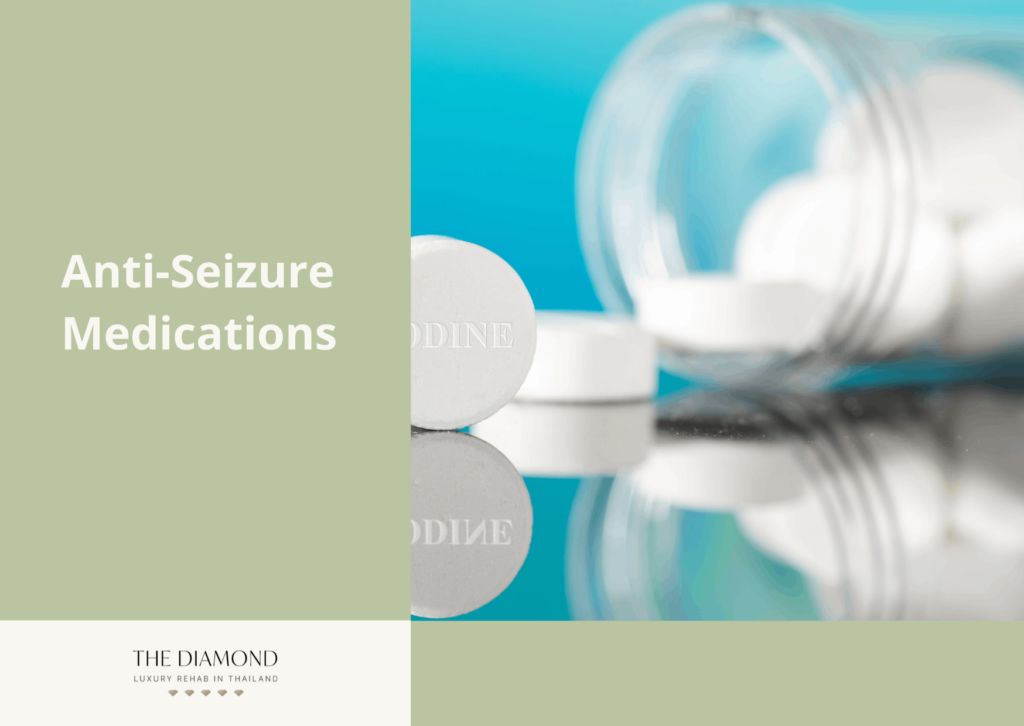
Anti-seizure (anticonvulsant) medications are used to treat epileptic seizures. Although these medications cannot cure epilepsy or other seizure-inducing conditions, they are used to treat the seizure symptom.
Brivaracetam (sold as Briviact) can have serious side effects, such as hallucinations, according to the Safety & Side Effects article released by Briviact.com. Another anticonvulsant called levetiracetam (sold as Keppra) has also been reported to induce hallucinations, according to Shakya et al. in their 2012 case report published in the Case Reports In Medicine journal. This case report also notes that hallucinations are not a common side effect of anti-seizure medications.
In a 1996 Case Report published by Tokinaga et al. in the Psychiatry and Clinical Neuroscience Journal, it was reported that nitrazepam (sold as Mogadon), a benzodiazepine that can be used for seizures, caused repeated hallucinations after therapeutic doses.
Carbamazepine (sold as Tegretol) has also been linked to auditory hallucinations and anticonvulsant hypersensitivity in a 2006 case report published by Beitinger et al. in the Pharmacopsychiatry journal.
Current research does not indicate a link between higher dosages of anti-seizure medication and hallucinations. However, it is considered a rare complication by Erdogan and Bosnak in their 2017 article published in the Northern Clinics of Istanbul Journal.
7. Sleep medications
Sleeping pills are a type of medication that is usually prescribed to treat insomnia. This medication cannot be bought over the counter as you would need a prescription from a doctor.
In a 2013 case report published in the Indian Journal of Psychological Medicine, authors Singh, and Loona reported a case of zolpidem (sold as Ambien) induced hallucinations in a 20-year-old patient.
Users of eszopiclone (sold as Lunesta) have been warned by the American Addiction Centers that long-term abuse of this drug can cause hallucinations or paranoia. Other Psychological problems might also arise from long-term usage of this drug.
It is possible to overdose on sleeping pills if the drug is taken in higher doses. Thus, it’s vital to stick to the prescribed dose per day. If the sleeping pills are not effective enough, a consultation should be scheduled with a registered doctor.
In a 2014 article published in the Addiction Health Journal, authors Eslami-Shahrbabaki et al. described a case in which the patient became addicted to higher doses of zolpidem, and this directly caused psychosis symptoms, such as hallucinations.
According to a 2007 article, written by Stephanie Saul and published in the New York Times, hallucinations are a common side effect of sleeping pills. The FDA found it necessary to inform the public on how to take sleeping pills and what common side effects could entail, including hallucination.
8. Parkinson’s medications
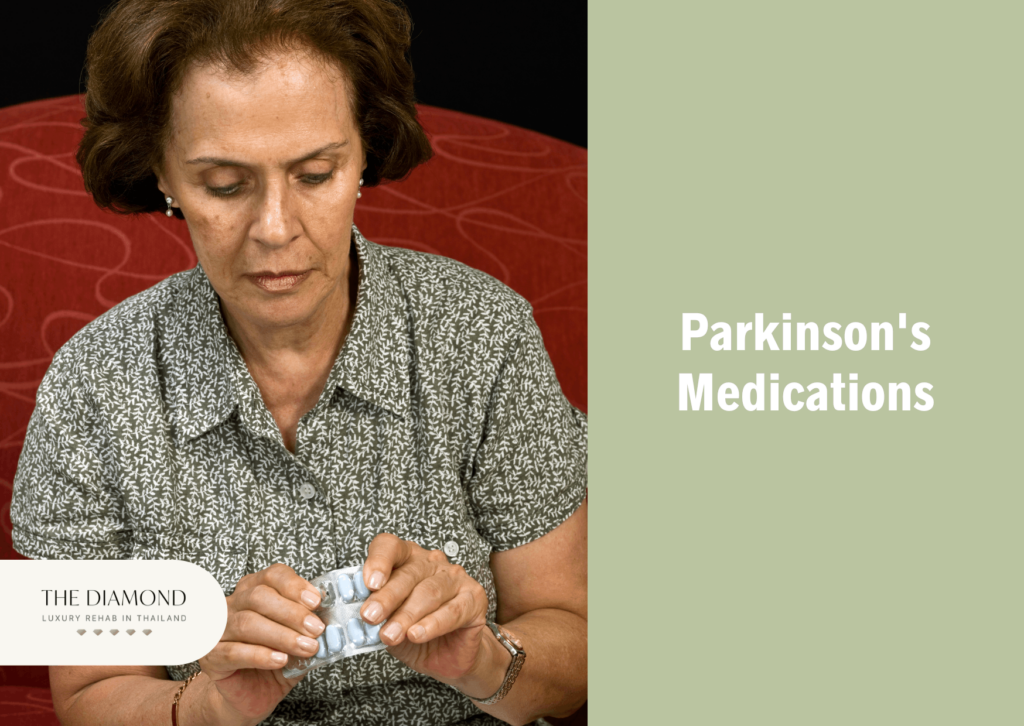
Parkinson’s medication is prescribed to provide relief from Parkinson’s disease symptoms (tremors, muscle stiffness, or impaired balance). There are various medications that could be prescribed for Parkinson’s.
Levodopa and carbidopa are used in combination to treat the symptoms related to Parkinson’s disease, according to the National Institute of Medicine. Levodopa is part of a class of medication called central nervous system agents. However, patients taking this medication tend to have nausea and vomiting as side effects. Thus carbidopa, which prevents levodopa from breaking down before reaching the brain, is prescribed in conjunction with levodopa.
A 2003 article by Larsen et al. published in the European Journal of Neurology estimated that 14% of patients who took entacapone (sold as Comtan) experienced hallucinations as a side effect. According to a 2018 article published by Parkinson’s Foundation, changing medications or increasing a stable dose of Parkinson’s medication could set off hallucinations.
Studies have shown a 5% to 17% chance of hallucinations developing in patients receiving ropinirole (sold as Requip) for Parkinson’s disease. This was reported in a 2010 case report by Dr. Grover and Dr. Ghosh in The Primary Care Companion to the Journal of Clinical Psychiatry.
In their 2020 article published in the Advances in Clinical Neuroscience and Rehabilitation, Weill et al. state that hallucinations become more common when the duration of levodopa usage is increased.
9. Antihistamines

Antihistamines are a type of medication that is usually used to treat symptoms of allergies. There are two types of antihistamines that are bound to two histamine receptors: H-1 receptors and H-2 receptors. Antihistamines that block the H-1 receptors are used to treat allergy symptoms.
Antihistamines that block the H-2 receptors are used to treat gastrointestinal conditions, such as acid reflux or motion sickness, according to Cleveland Clinic.
Hallucinations have been linked to overdosing on diphenhydramine (sold as Benedryl), according to a 2022 article published by Sicari and Zabbo in Statpearls. When a higher dosage of diphenhydramine is taken, the chances of hallucinations increase.
Hallucinations are not a common side effect of antihistamines if the medication is taken correctly according to the instructions.
10. Pain medications
Pain medications are a class of drugs that help to relieve headaches, sore muscles, arthritis, and most other aches and pains. These medications can be bought over the counter, however, stronger pain medications, such as opioids, for severe pain or chronic pain, can be prescribed by a doctor.
A 2016 article written by Sivanesan et al. and published in the Anesthesia & Analgesia journal states that opium-induced hallucinations are an uncommon yet significant reaction to opium treatment. WebMD identifies hallucinations as a rare but severe side effect of ibuprofen (sold as Advil or Nerofen) which is available over the counter as a pain reliever.
A 1986 report by Braddock and Heard, published in the International Clinical Psychopharmacology journal, reported a case of indomethacin (sold as Indocin) induced visual hallucinations.
Hallucinations are not a common side effect of pain medications; however, if a patient does experience hallucinations, it’s usually to a severe degree. A healthcare provider should immediately be contacted if a person experiences hallucinations after taking pain-relieving medications.
11. Corticosteroids

Corticosteroids are a type of medication that is used to reduce inflammation and treat rheumatologic diseases, such as lupus and vasculitis. Corticosteroids are designed to mimic cortisone, a hormone produced by the adrenal glands.
According to the Diagnostic and Statistical Manual of Mental Disorders. 5th ed., in steroid-induced psychosis, patients experience delusions or hallucinations shortly after beginning a course of steroids.
Albeit not a very common symptom, psychosis (including hallucinations and delusions) is indicative of a too-high corticosteroid dosage, according to the National Library of Medicine.
What is important to know about hallucination-inducing medicine?
It’s important to remember that not everyone who takes antidepressants, antipsychotics, antihistamines, etc., will experience hallucinations. There are various factors, such as age, mental health, dosage, and taking multiple medications, that influence how an individual reacts to any medication.
How common are drug-induced hallucinations?
Drug-induced hallucinations are quite rare. In a 2015 study published by Taam et al. in The European Journal of Psychiatry, 469,181 reports of adverse effects recorded between 1985 and 2013 were studied. Of these reports, 4,086 (0.87%) were hallucinations.
Medication-induced psychotic disorder (MIPD) is a condition directly linked to certain prescription drugs. Hallucinations and delusions are two symptoms of MIPD. In their 2022 article published in the Psychiatria Danubina, Niebrzydowska et al. state that MIPD is a rare condition and is usually associated with psychiatric comorbidity.
What should I do if I hallucinate while taking medication?
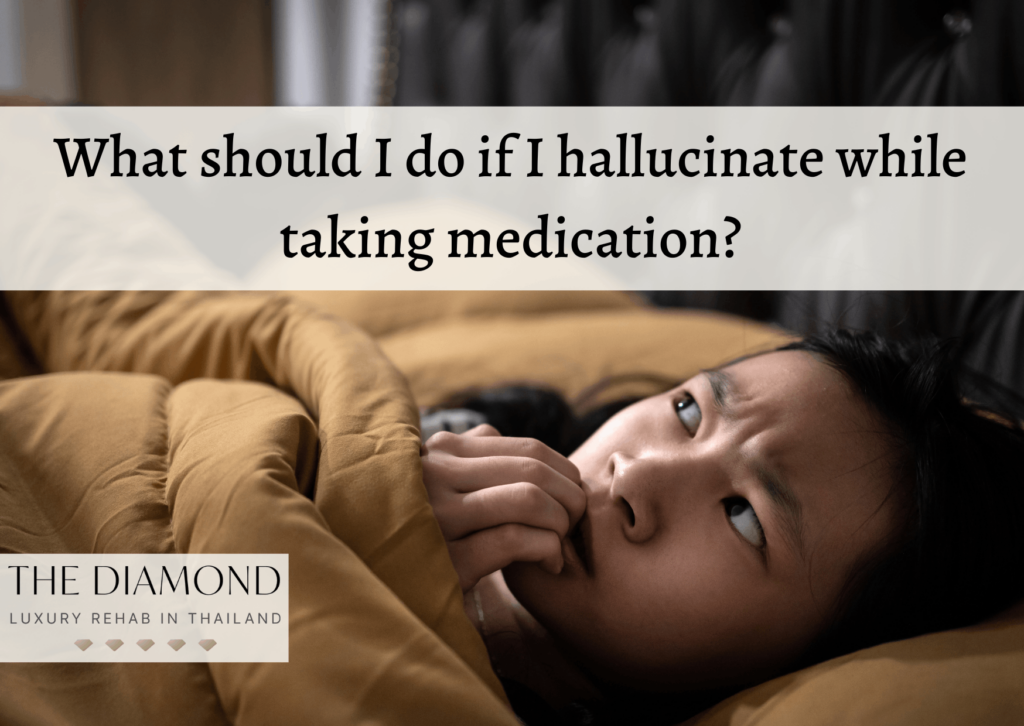
If you experience hallucinations while taking medication, immediately contact your doctor. If the hallucinations are severe or disturbing, consider asking a friend or family member to drive you to the emergency room. Do not attempt to drive while you are experiencing hallucinations.
Does taking particular drugs at specific times lessen the hallucination risk?
No, as of yet, there is no evidence that supports taking drugs at specific times lessens the risk of hallucination. There is, however, evidence that taking multiple drugs in conjunction could increase the risk of hallucinations, according to Dagli et al. in a 2014 article posted in the Journal of International Oral Health Journal.
How long do hallucinations usually last after taking medication?
Most episodes of hallucinations do not last longer than 60 minutes, according to a 2009 article by Teeple et al. published in the Primary Care Companion to the Journal of Clinical Psychiatry. However, every case is different and medication-induced hallucinations can last a few minutes, hours, days, weeks, or even months.
What causes hallucinations most often?
The most common causes of hallucinations are mental health disorders, such as schizophrenia and bipolar disorder. According to WebMD, roughly 70% of people diagnosed with schizophrenia experience visual or auditory hallucinations. Drugs (illegal and prescribed medication) and alcohol are also common causes of hallucinations.
What are the types of hallucinations?
There are five main types of hallucinations, each relating to one of the five senses – auditory, visual, tactile, olfactory, and gustatory. Auditory hallucinations are the most common type of hallucination, and it involves hearing sounds that aren’t real.
Visual hallucinations involve seeing things that are not real. Tactile hallucinations involve feeling touch or movement on your body that is not real. Olfactory hallucinations involve experiencing smells that are not real. Lastly, gustatory hallucinations can cause unpleasant tastes that are not real. This type of hallucination is common in patients who have epilepsy, according to Cleveland Clinic.
Are there any alternative medications that can be used to avoid the risk of hallucinations?
Yes, antipsychotics are a type of medication that can be taken to avoid the risk of hallucinations. However, this medication can only be prescribed by a doctor; it is usually only prescribed if deemed necessary.
Antipsychotics such as olanzapine (sold as Zyprexa) and amisulpride (sold as Solian) have been noted to be effective in reducing hallucination symptoms, according to Sommer et al. in their 2012 article published in the Schizophrenia Bulletin journal.
Can you develop an addiction from overusing medicines that may cause hallucinations?
Yes, it is possible to develop an addiction to medicines that cause hallucinations if they are overused. This type of addiction is usually referred to as hallucinogens addiction. Pain relieving-, sleeping, and antipsychotic medications are the most likely to be addictive to regular users of the medication.

